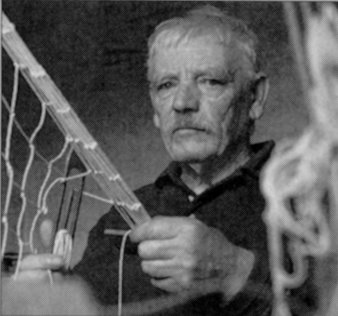Nick Baty meets a Wirral fisherman whose genes may reveal Liverpool's Viking roots …
Derek Mellor's family has fished off the Wirral coast for centuries. The keen local historian has traced his family tree back to the mid-18th century through at least six generations of fishermen.
The Mellors married into other fishing, farming and mining families. One branch of the family tree goes back to 1610, while another leads to Glenda Jackson, the actress and Labour MP who grew up in the area.

But painstaking research by Derek Mellor, pictured opposite, could soon be upstaged by more modern techniques. He is one of 300 Wirral people to be DNA-tested to discover if they have Viking ancestry.
The first Scandinavian settlers arrived on the Mersey peninsula in 902 AD, but it is unclear if they were driven out by the Normans or if they stayed to blend with the local population. Now Stephen Harding, professor of physical biochemistry at Nottingham University, hopes DNA testing will show that the Wirral's modern population are descended from these early settlers.
Professor Harding and his team spent weeks taking samples from Wirral people whose families had lived in the area for at least three generations. The test involves scraping cells from the inside of the mouth. The samples are being tested at University College London and will show the origins of their donors. The results form part of a BBC programme, Blood of the Vikings, first broadcast in 2001. [1]
"People are interested in where they come from," says Professor Harding, who has written a book - Ingimund's Saga - about Wirral's Viking history. His survey aims to prove the theory that there is still plenty of Viking blood in the region. "The interesting bit is seeing how the DNA is distributed, seeing if there's any trend," Professor Harding says. "I believe that Wirral is one of the most significant Viking areas of the UK. There are more than 600 place names on Wirral which have Scandinavian, and largely Norwegian, elements. People think of Merseyside as the Beatles and the football teams, yet we have something here which has the potential to be as significant as Jorvik, the Viking settlement found at York. This is Merseyside's forgotten Viking kingdom - or Norway's forgotten colony. Norwegian was still being spoken on Wirral up to the 13th century. The language slowly disappeared, but the modern Scouse dialect owes its origins to the Norse."
Long before Liverpool existed, Wirral - the area surrounded on three sides by the River Mersey, the River Dee and the Irish Sea - was an independent Viking state. It had its own leader, language and the earliest parliament in the British Isles, at Thingwall, which translates as "assembley field". The Vikings arrived on the Wirral coast after being forced out of their older settlement at Dublin. Athelfled, Queen of Mercia, gave the peninsula to the Vikings on condition that they did not try to colonise other areas. But the newcomers failed to keep their side of the bargain. "It's a misconception to regard the Vikings as a gang of thugs," Professor Harding says. "They were generally a peacable bunch and settled here as farmers and fishers. But their eyes soon fell on the Saxon-controlled city of Chester and a bloody battle ensued."
Today it is still uncertain whether the early Scandinavian immigrants fled or stayed to become ancestors of the modern-day fishermen and farmers of Wirral. Derek Mellor, who is unmarried and has no children, mourns the fact that he is possibly the last of a long and ancient line of men who braved the treacherous conditions of the Dee estuary and the Irish Sea to feed their families. "I'm proud they survived doing that job," says Mr Mellor. "I've had a few hairy moments myself out there when it's been rough."
If professor Harding's research proves that the people of the Wirral are modern-day Vikings, Derek Mellor would be delighted to feel that he is part of that history.
[1] BBC News Release issued 20 August 2001: Blood of the Vikings headlines a bold and hugely ambitious £96 million television season, and is a ground-breaking programme which combines archaeology and genetics for the first time to trace just how far the Vikings changed the bloodlines of modern day Britain. A unique scientific experiment, staged by the BBC and University College London and involving DNA testing more than 2,500 people, will establish how far the people of the British Isles are descended from the Nordic invaders. Presenter Julian Richards also reveals the first hard archaeological evidence of Viking raids on the British mainland.